Whats the Best Way to Keep Cats Off Your Car
The debate of "cats vs. dogs" is an argument as old as time. Rarely will you find someone who likes both equally. Dog people are very passionate about their pups and cat people are very passionate about their felines. However, sometimes it feels like the cat people are a minority in a majorly dog-loving-world. And when things pop up like a 2017 study in the journal Society & Animals that shows human parents feel more empathy for puppies than they do for babies, it's hard to say dogs haven't won the cat vs. dog debate… But, have they?
Cats, as anyone who has one will tell you, are better than dogs in every conceivable way. They're softer, sweeter, and smarter. They're quieter and cleaner. They're masters of both the art of lazy lounging and the one of skillful hunting (of rodents). Plus, once upon a time, we used to revere them as gods. And this all isn't just one cat lover's opinion—there's science and data to back it up. Yes, you may have heard that dogs are man's best friends, but here are all of the reasons why cats actually make for far better pals.

Next time someone asks you to defend why cats are better than dogs, lob this fun little fact at them: Cat people are smarter than dog people. According to 2017 research published in the Human-Animal Interaction Bulletin, self-identified cat lovers tended to have higher intelligence than dog lovers do. (We are less outgoing, though.)
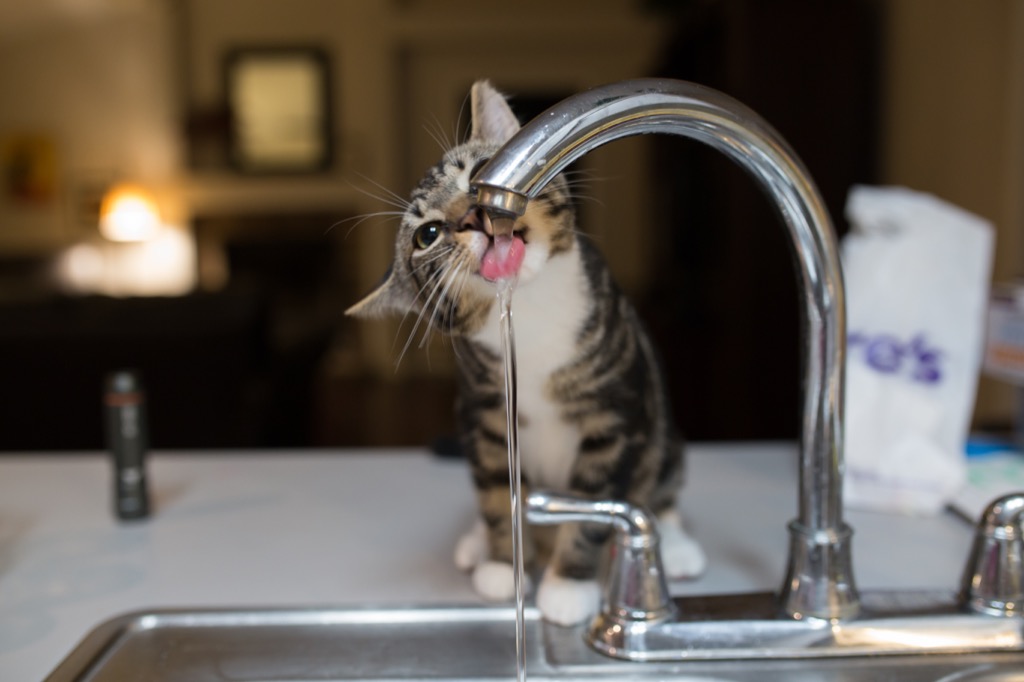
As a team of researchers from the Massachusetts Institute of Technology and Princeton University revealed in 2010, cats drink water far more efficiently than dogs do. When a cat takes a drink, its tongue doesn't actually pierce the water's surface; it forms a funnel that lifts water up for a splash-free drink, getting in four laps per second. A dog, on the other hand, will sloppily crash its tongue into the water bowl like a cannonball. It's scientific proof that cats rule and dogs drool—literally.
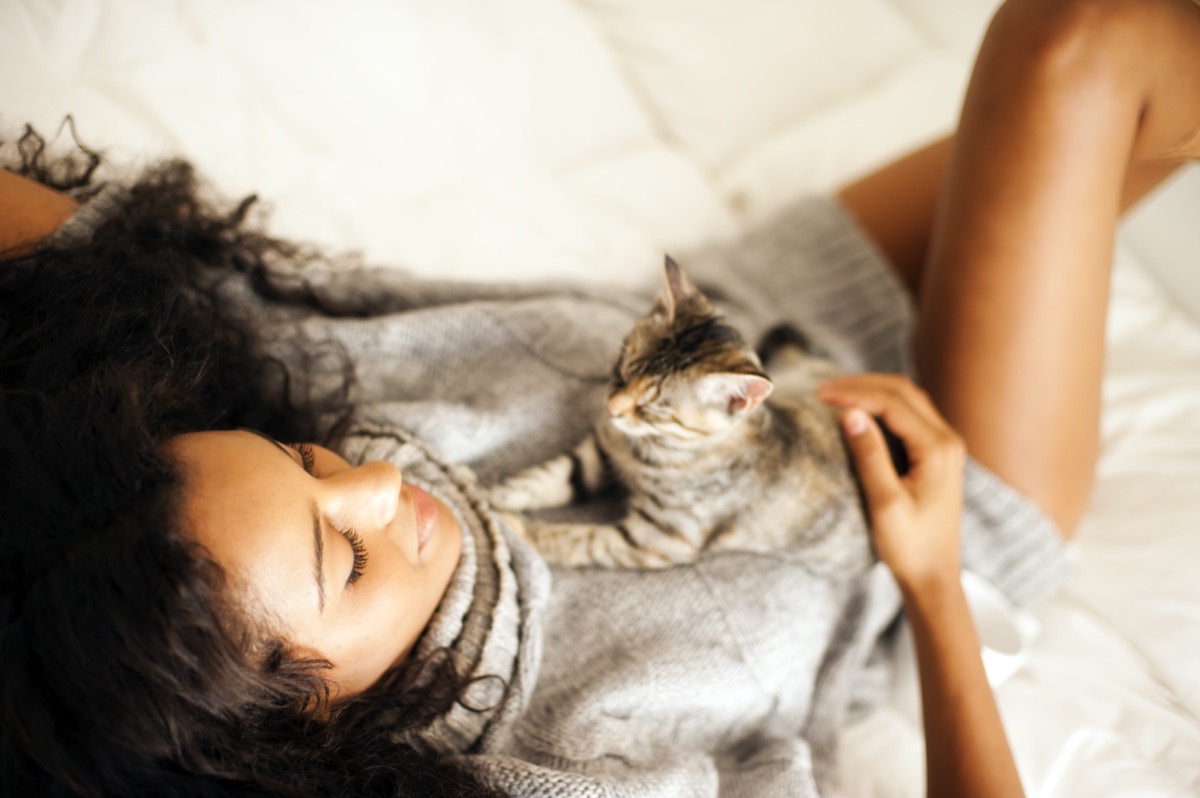
According to the Animal Humane Society, average adoption fees for kittens and cats start at $32 and can run as high as $270. For dogs and puppies, however, fees start at $115, but go all the way up to $660! Adopting a cat is just more cost-efficient.
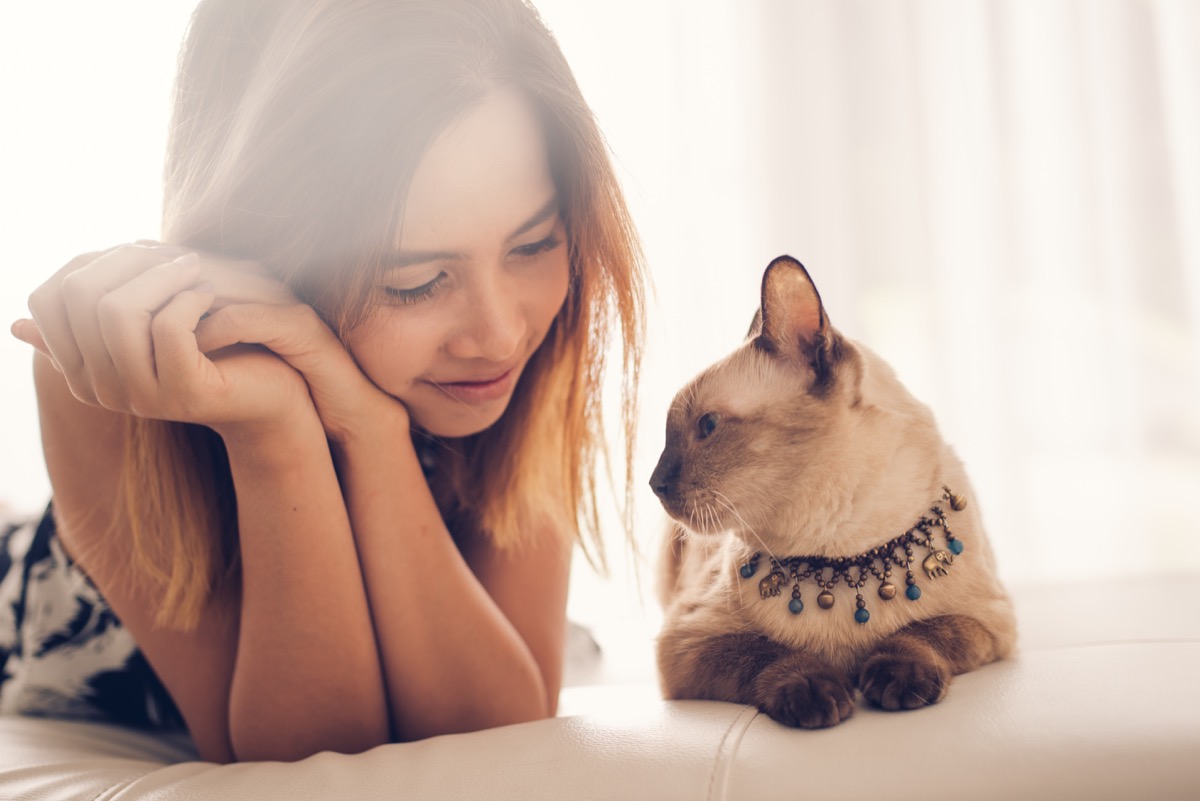
Over the years, cats have earned a bad rap for being cold and distant. "They only love you because you feed them," dog owners often tell cat owners. There's also the persistent rumor that—were you to die—a cat wouldn't care at all, and would, in fact, eat your deceased remains to survive. But research indicates all of this thinking is just plain hooey. According to a 2017 study in Behavioural Processes, cats prefer human interaction to all other stimuli, including food, toys, and catnip. Can you say the same for dogs? We think not.
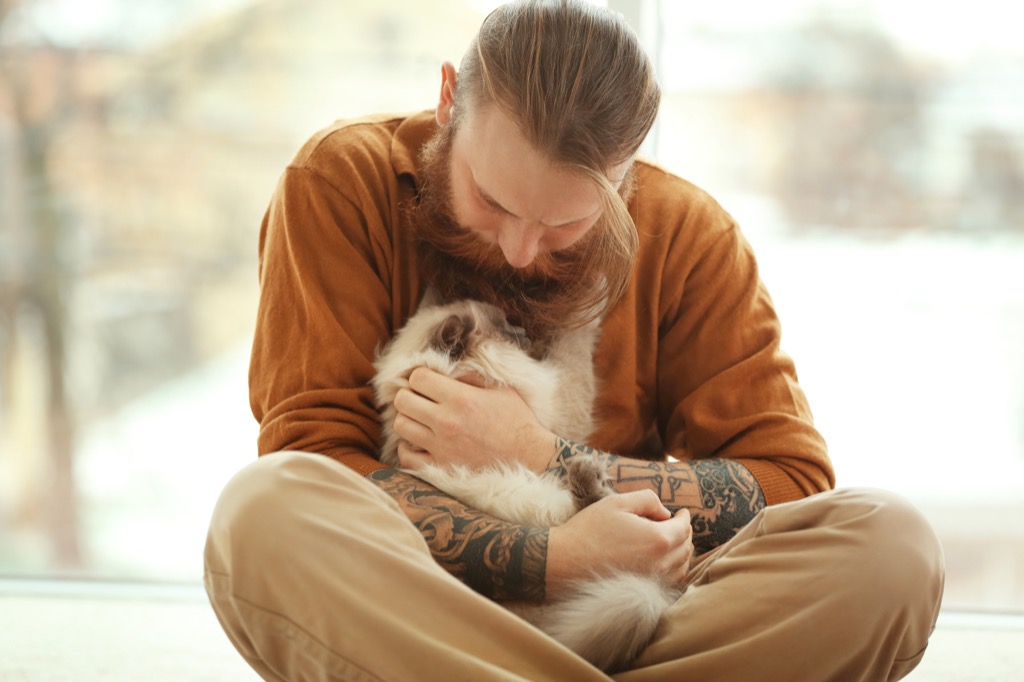
Dogs, it often appears, love everyone. Cats, on the other hand, are more standoffish when meeting someone new. (Centuries of domesticity still can't eliminate the innate caution of a stealthy predator, it seems.) When a dog showers you in affection, it may be nice, but you know that everyone else is getting the same treatment. When a cat warms up to you, though, you feel special and unique—like you've earned it. And, as we just learned from that Behavioural Processes study, no, it's not just because of the food.
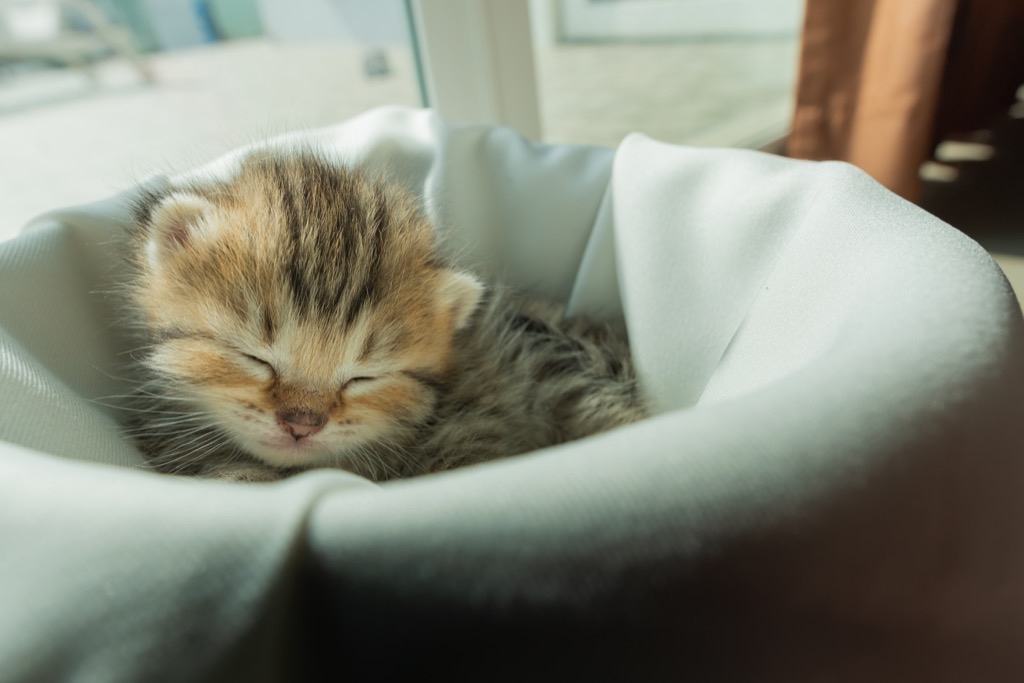
On average, Pets WebMD says a domestic cat will usually weigh around 10 pounds. Dogs, of course, have more variables—there are hundreds of different breeds—but, the American Kennel Club clocks a medium-sized dogs, on average, at about 50 pounds. As far as who takes up more of your well-earned space, it's not rocket science.

Need another big reason why cats are better than dogs? They live a lot longer. In fact, Pet WebMD says a domesticated cat, on average, will live anywhere from 10 to 15 years. Dogs, on the other hand? Depending on size, eight to 11.
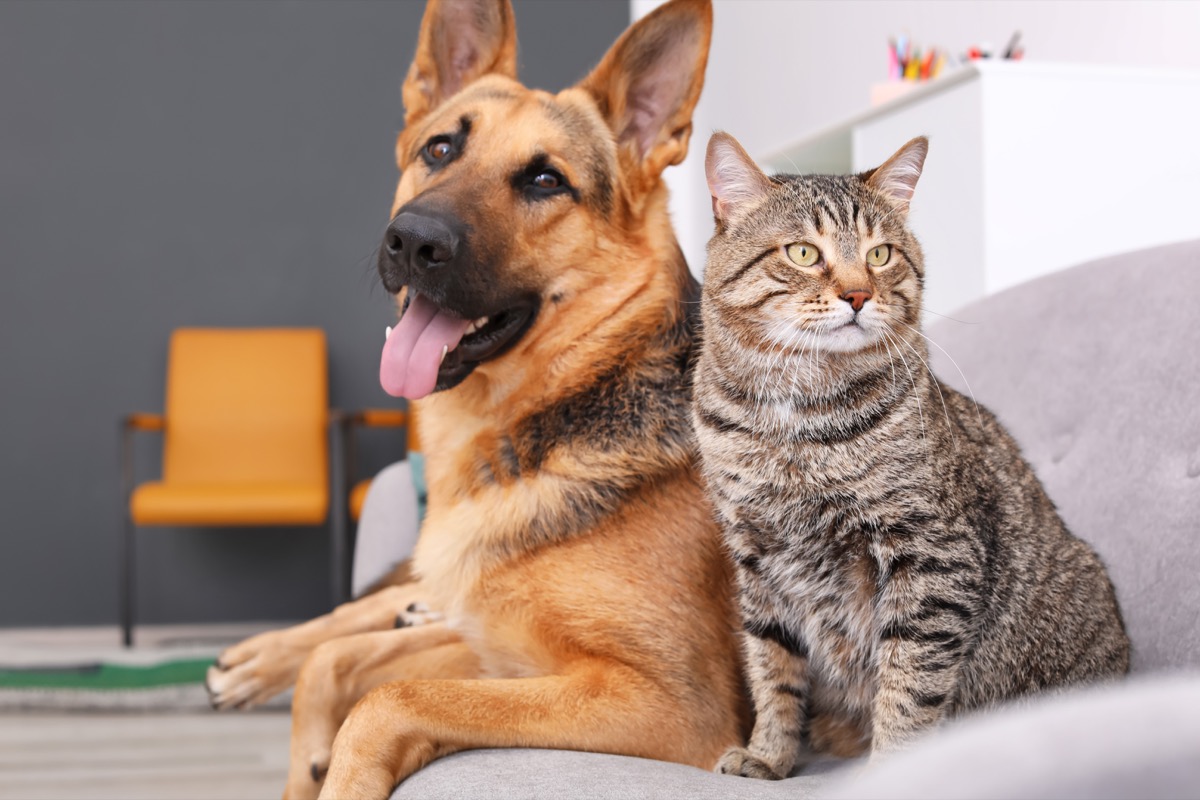
If you want to conjure some instant revulsion, just think of the words "wet" and "dog." You know exactly what odious scent I'm talking about, and you know just as well that few things offend the olfactory nerves as much as a the aroma of a damp dog. Cats don't ever reek like that.
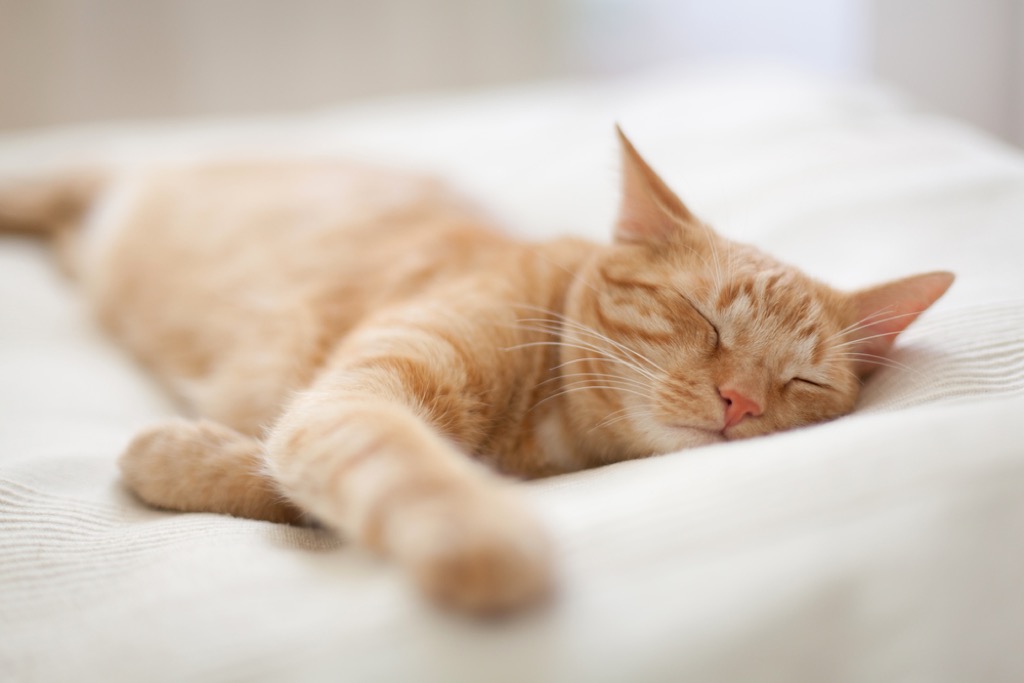
Fact: Animals are at their cutest when sound asleep. And cats sleep anywhere from 12 to 16 hours per day, which means you have more than half of your waking hours to snap some seriousaww-inducing Instagram pics. And, frankly, we should take a note from this behavior because we could all stand to sleep a few hours more each day.
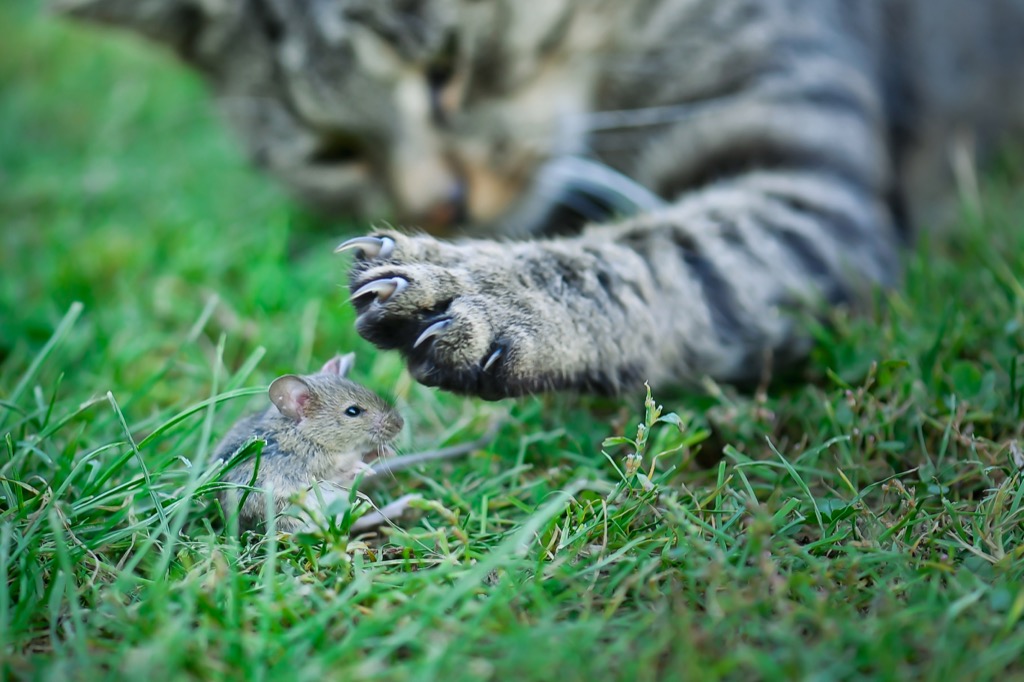
Before you judge a cat's sleeping habits, know that these long hours are borne less out of laziness and more out of evolutionary coding. Cats are natural predators; unlike other mammals, who may have foraged for food, felines had to hunt, which meant spending large chunks of the day asleep, conserving energy to chase down their next meal. This is also why much of that 12-to-16-hour period is spent in a light doze. Before domesticity came into play, felines had to sleep lightly, in case prey—or a more dangerous predator—stepped on their turf. (That's also why we call a "catnap" a catnap.)
Their centuries-long history of hunting has carried into the modern day. According to a 2013 study published in Biological Conservation, domesticated house cats are responsible for the deaths of 2.9 billion rodents and birds every year. This is all to say: Your cat is basically a terminator with fur, and we'd be overrun with rodents if not for their valiant effort regulate the vermin population.
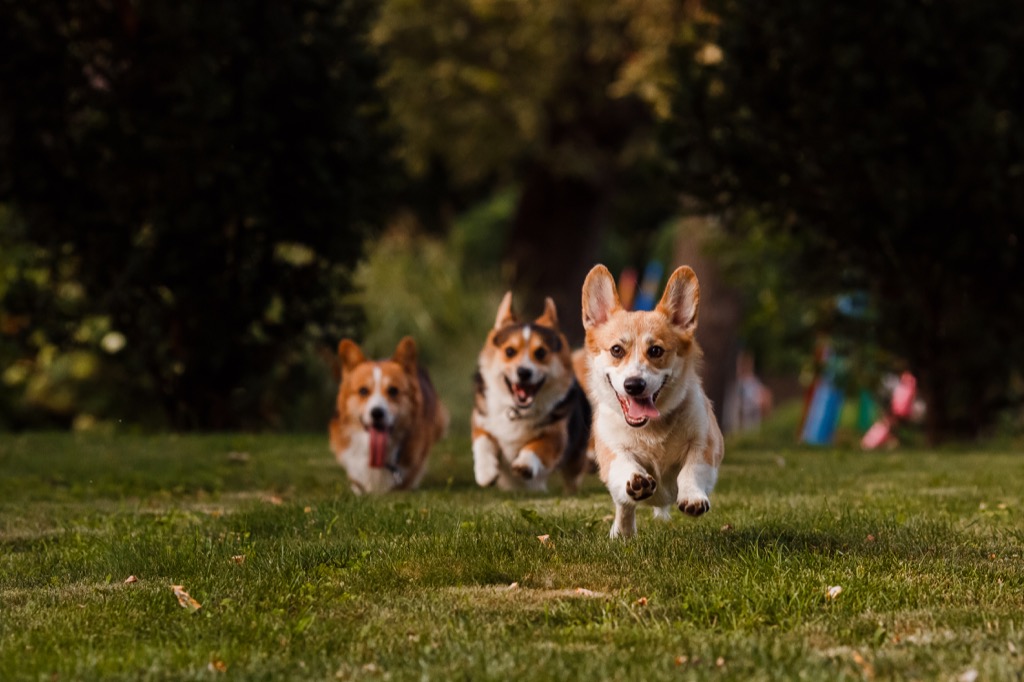
You may assume all of this wanton death leaves a negative impact on the environment, but ecosystems are well-adjusted by now. In fact, it's not cats butdogs that aren't so great for the planet. According to research conducted by New Zealand researchers in 2009, dogs have about 2.1 times the environmental impact of an SUV. Talk about a serious carbon paw print!
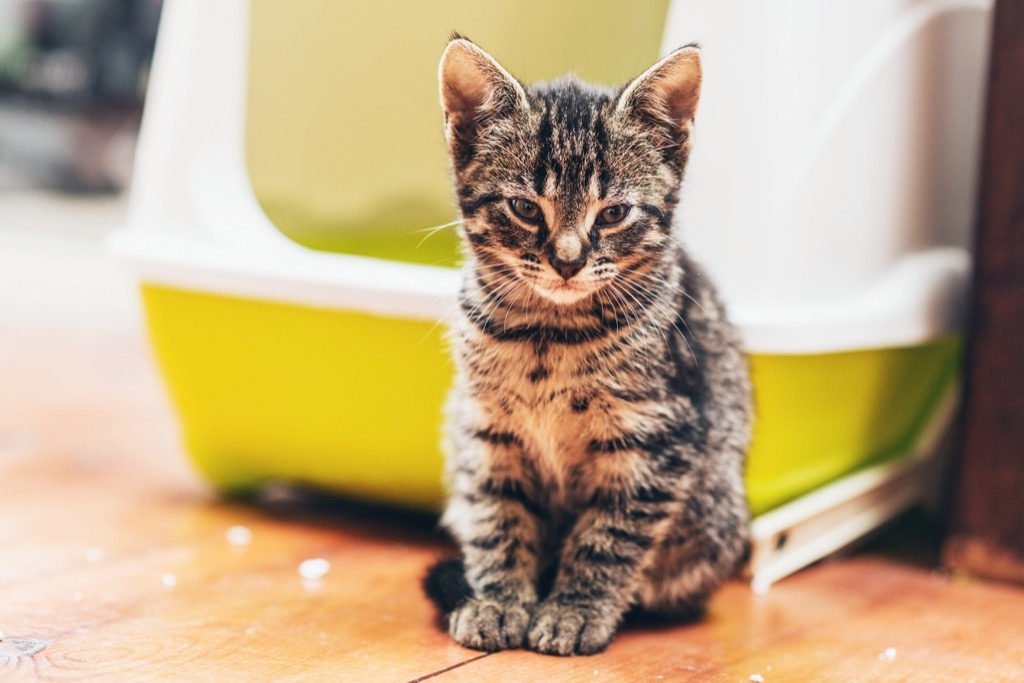
Whenever dogs need to relieve themselves, you have to take them outside. Yes, you can train them to need this only at certain hours of the day, but still, it's a pain. Cats will just tend to a litter box on their own volition. A cat and its owner mostly stay out of each other's bathroom business—and that's truly one of the sweetest reasons why cats are better than dogs.
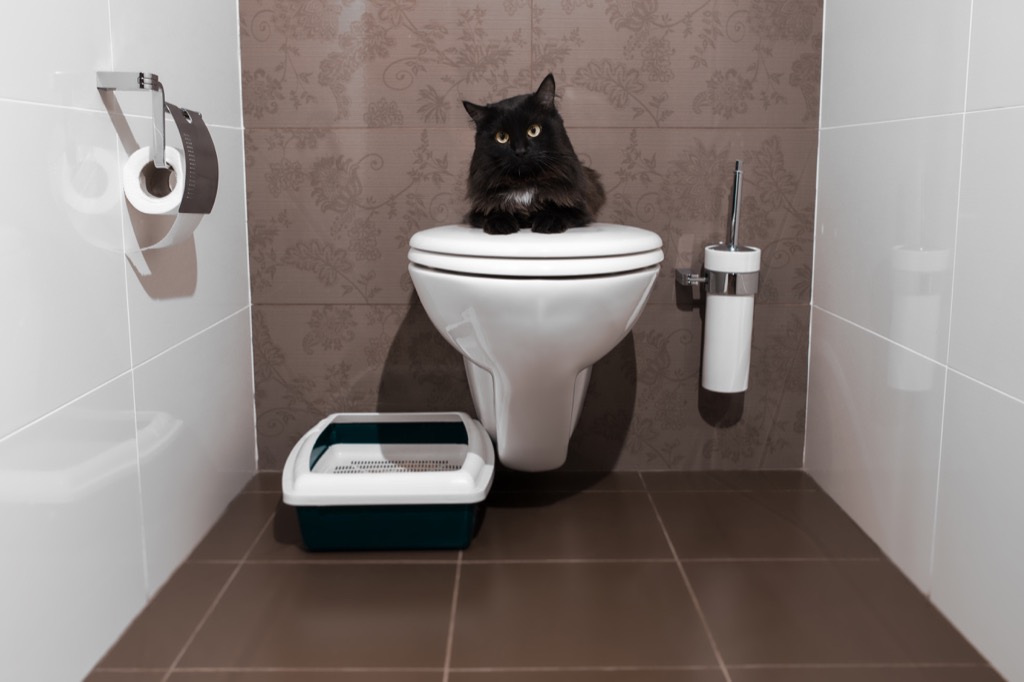
It's not just a Meet the Parents storyline. It's a true story. You'll have to start the training early, though—when they're about three or four months old.
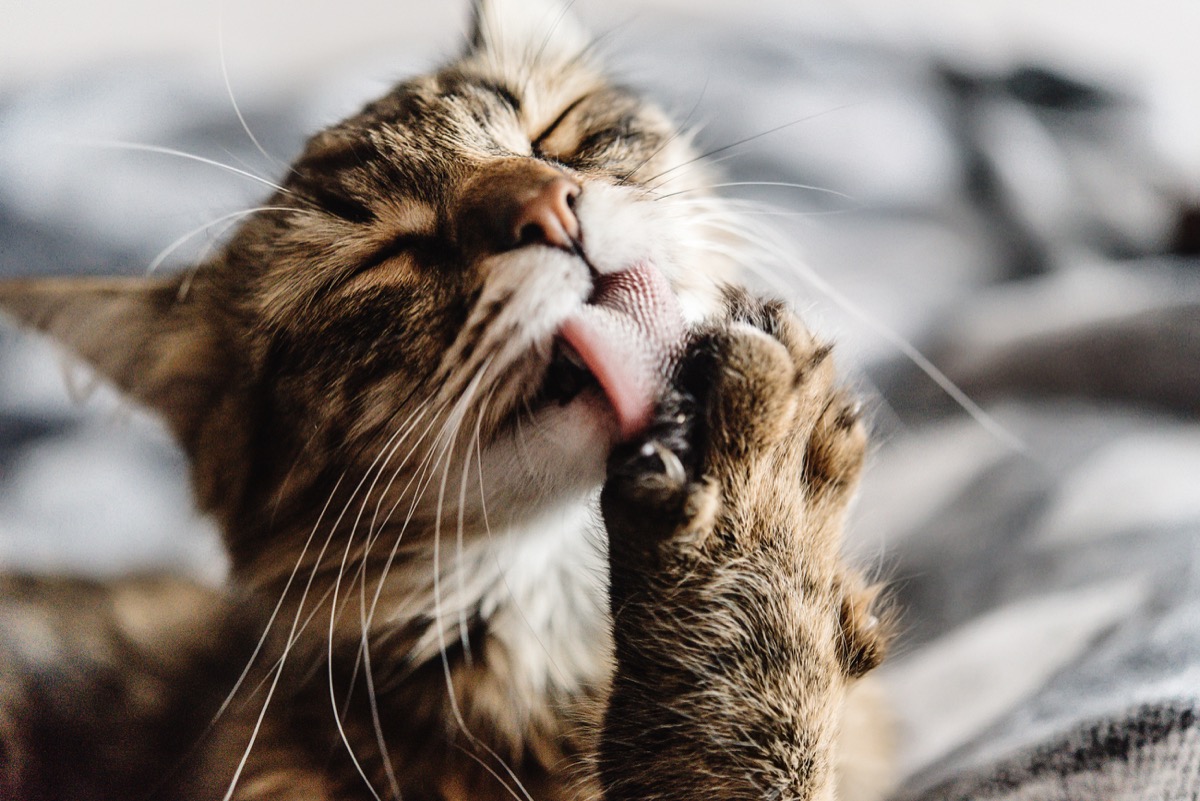
Cats don't require regular grooming sessions like dogs do. The tongue of a cat is barbed in a way that removes dirt and grime from fur with startling efficiency. Cats literally lick themselves clean, another practical reason why they are better than dogs.

As early as 3,000 B.C.E., felines were worshipped as deities. The Egyptian goddess Bastet—of war, protection, or the moon, depending on the dynasty—is among the first. Her sister in folklore, Sekhmet, the warrior goddess of healing or the hunt (again, depending on the dynasty), was thought to have blown Egypt into existence with her breath. Oh, and there's also a little thing you maybe have heard of called The Sphinx.
But feline worship isn't relegated to Ancient Egyptian culture. There's also Dawon, the Hindu sacred tigress; Barong Ket, the Balinese "king of spirits;" and the entire pantheon of jaguar gods of the pre-Columbian Mayan era. In other words: Your cat may have descended from a deity. Whether you believe in that sort of thing or not, though, it can't hurt to treat the little fella as such.
Whats the Best Way to Keep Cats Off Your Car
Source: https://bestlifeonline.com/cats-vs-dogs/
0 Response to "Whats the Best Way to Keep Cats Off Your Car"
Post a Comment